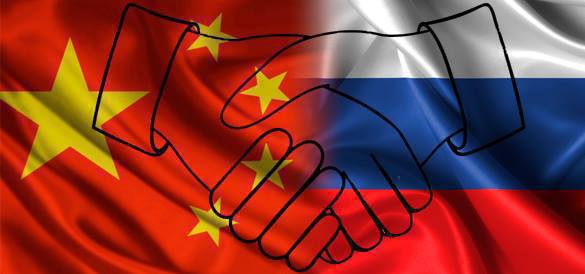Russia beats Saudi Arabia to become world's largest oil supplier to China
Having increased the average daily volume of oil exports to China by 25 percent in 2016, Russia deprived Saudi Arabia of the status of the world's major oil supplier to the most dynamically developing oil market of the world.

In 2016, Russia would deliver 1.05 million barrels of oil to China on a daily basis. Compared with 2015, oil exports to China increased by almost a quarter, which allowed Russia to become the largest oil supplier to China, Reuters reports making reference to the General Customs Administration of China.
China increased the average daily volume of crude oil purchases from Saudi Arabia in 2016 by only by 0.9% - to 1.02 million barrels. In December 2016, Russia increased its yearly shipments by 4.8% at once (up to 1.19 million barrels), while the volume of supplies of Saudi oil fell by almost 20% (to 841.82 thousand barrels).
According to experts' estimates, Saudi Arabia ships its oil mostly to state-run Chinese companies working on the basis of long-term contracts. At the same time, numerous independent processing companies purchase oil from the Far East, from where it is easier and cheaper to deliver small batches of raw materials.
China's demand for oil from South America increased in 2016 at a greater extent. Chinese companies increased oil purchases from Brazil by 37.6%, and from Venezuela - by 26%. Chinese oil imports from Iran in 2016 increased by 18%, which made it possible to bring the volume of deliveries to a record number of 624,260 barrels a day. Angola and Iraq are ranking third and fourth largest oil suppliers to China - the countries increased their oil supplies by 13 percent.
Russia may preserve the status of China's largest oil supplier in 2017 owing to growing deliveries via the ESPO (Eastern Siberia-Pacific Ocean) pipeline against the background of the reduction in oil production in Saudi Arabia (within the OPEC agreement and non-OPEC countries).
According to experts, the reduction of OPEC's oil output means that oil producers of the Gulf countries will lose some of their market share, although most of their reductions will affect Europe and the United States in the first place. In turn, Russia intends to expand the ESPO pipeline capacity and deliver oil to China through Kazakhstan, RBC reports.
Rosneft CEO Igor Sechin said during his recent meeting with President Putin that the company was planning to increase oil shipments to China to 31 million tons in 2017.
Pravda.Ru
Subscribe to Pravda.Ru Telegram channel, Facebook, RSS!





